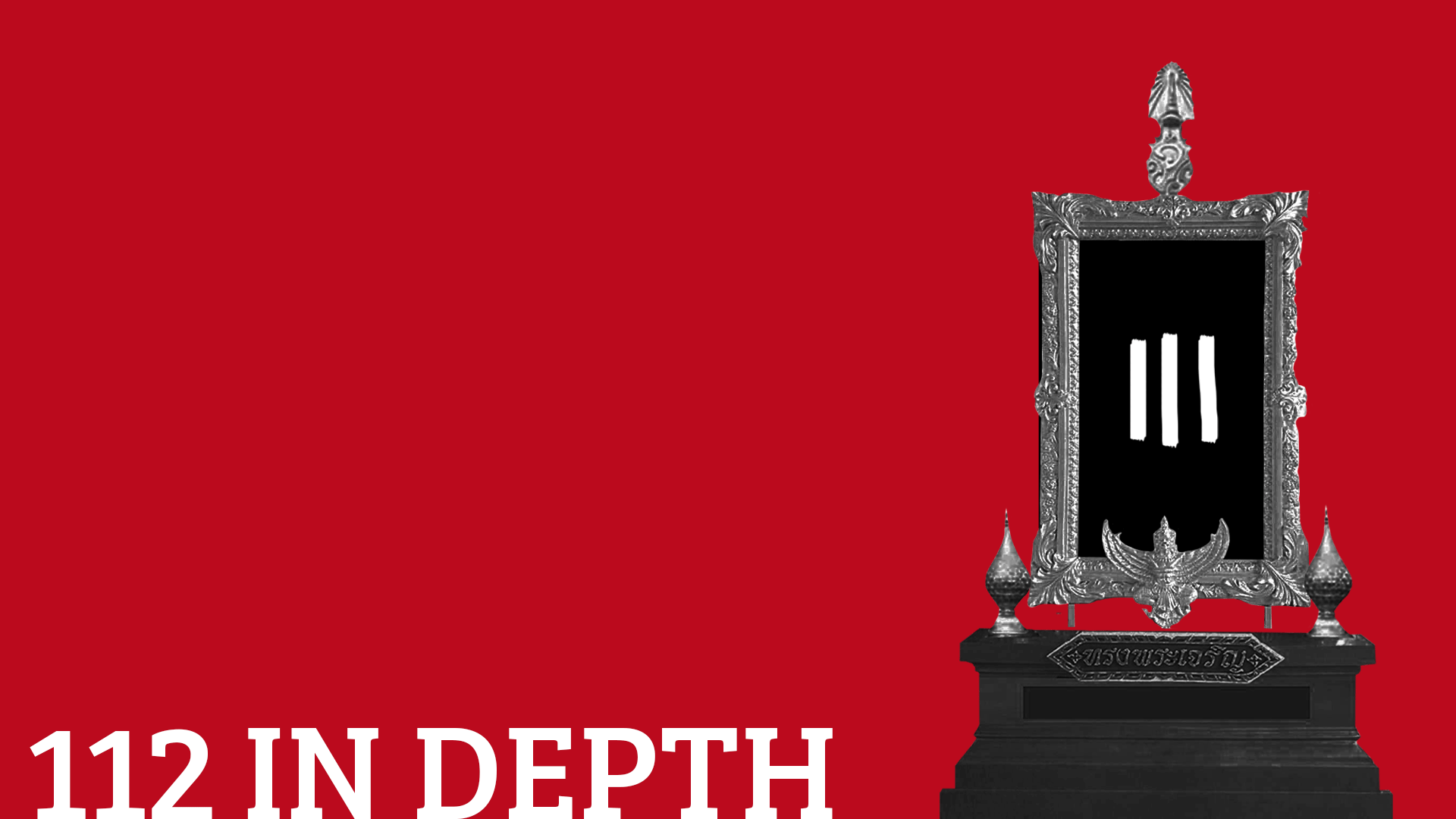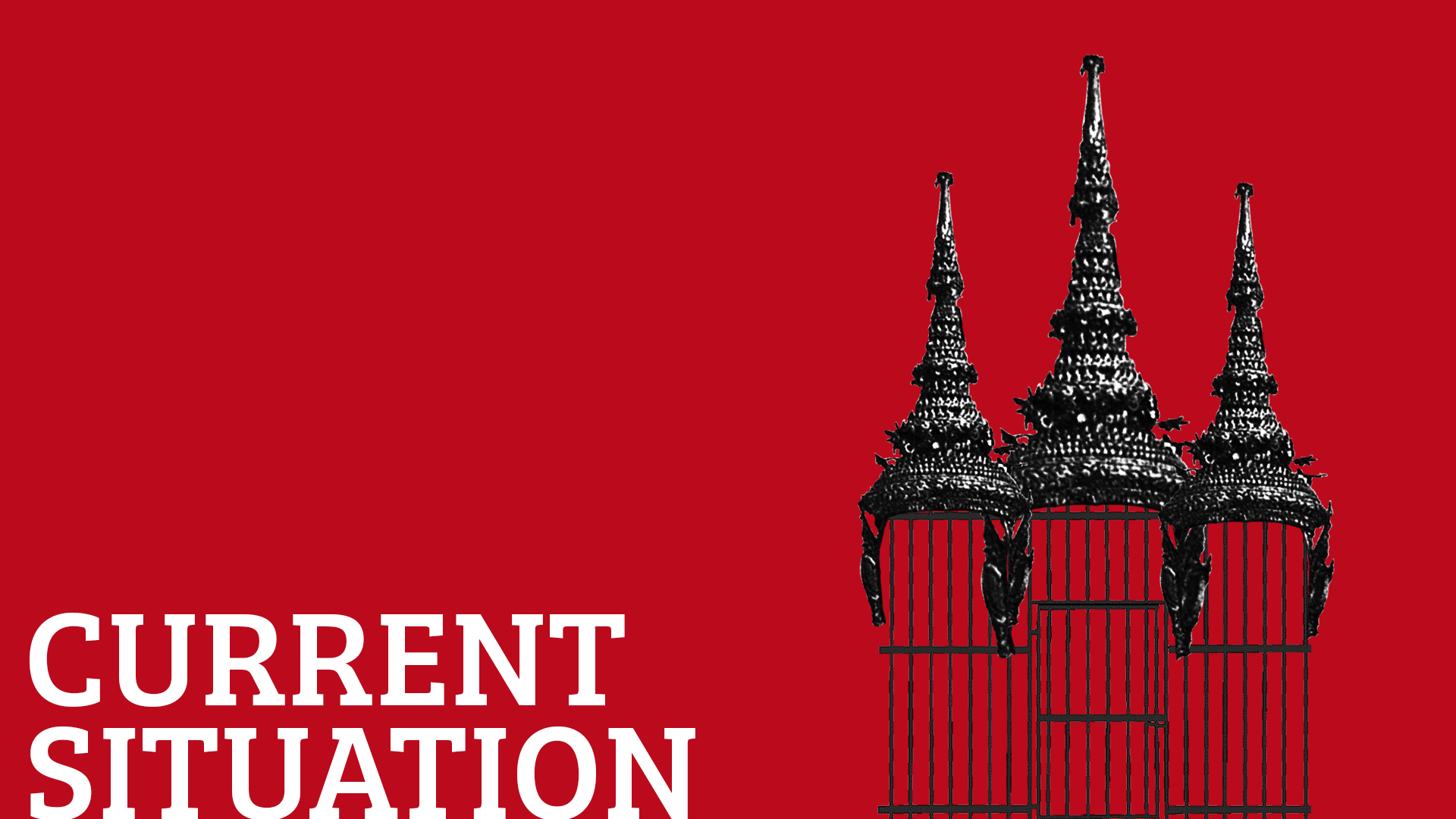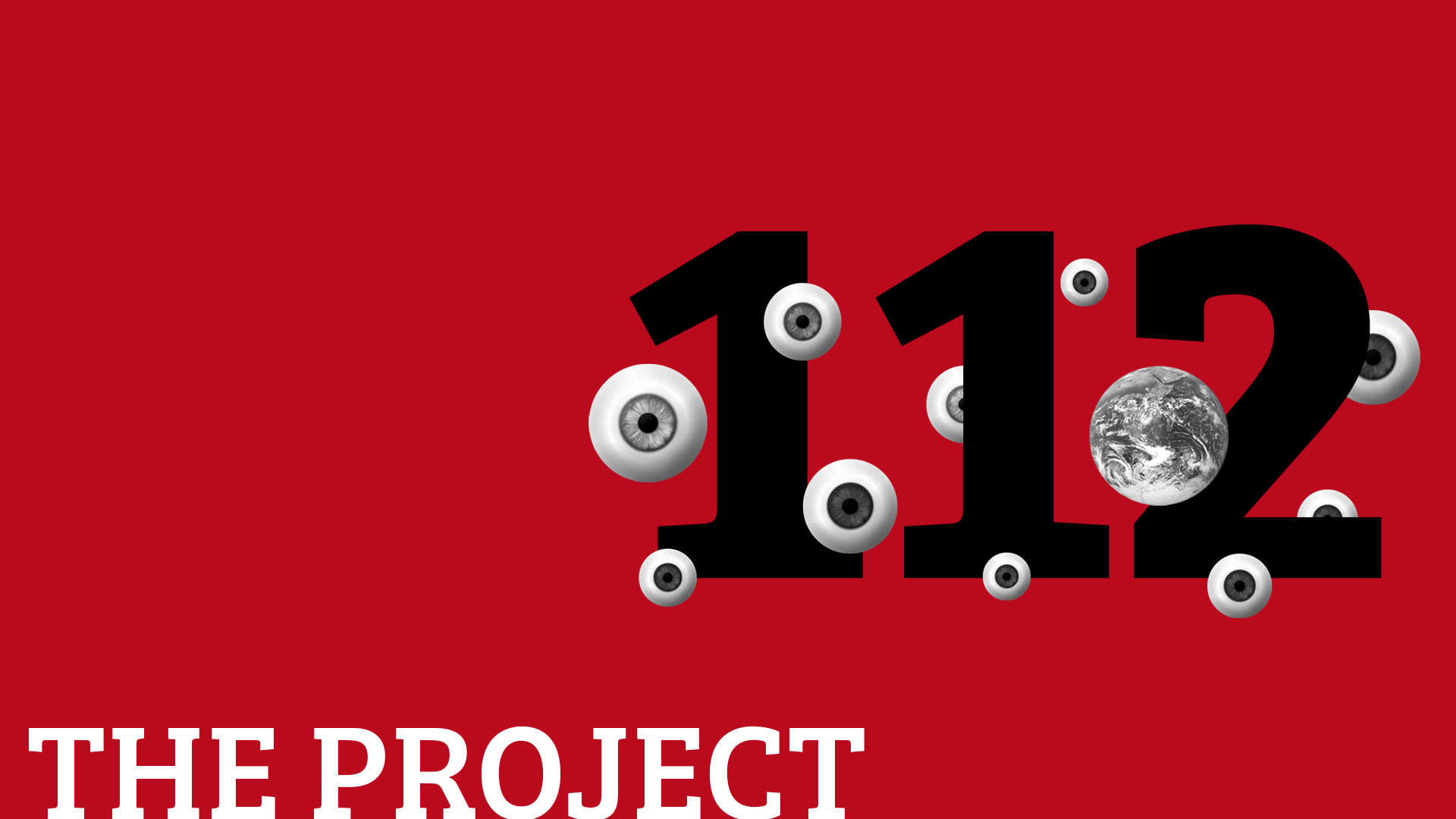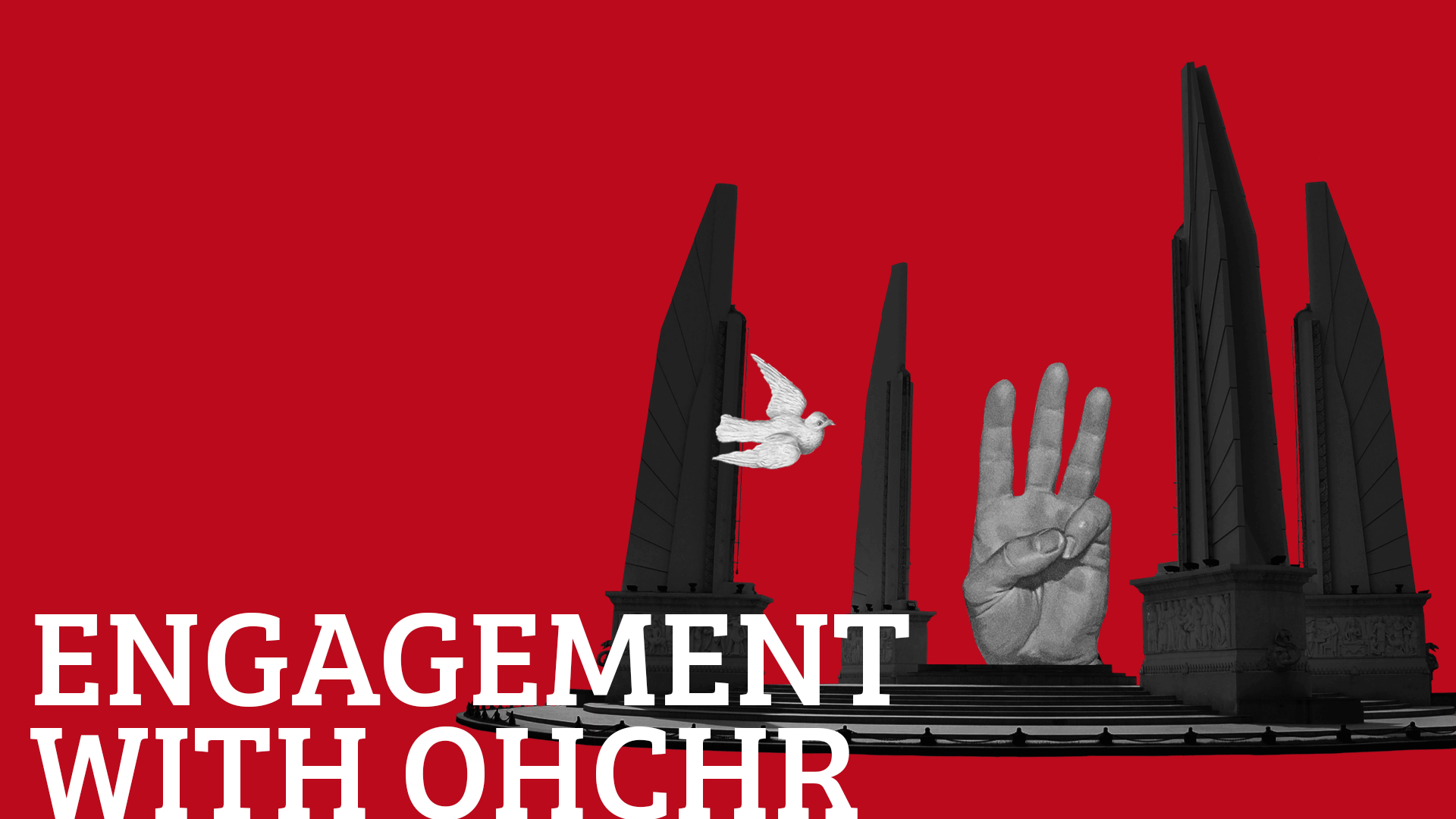
Banner: Copy of the 2017 Constitution of Thailand, at the Prime Ministers' Hall of Fame, Museum of Thai Royal Decorations, Gov. House of Thailand. Wikipedia Commons
A Fight Between Monarchy and Civilians?
Thailand’s constitutional crisis thus represents more than a national political dispute; it illuminates fundamental tensions in modern constitutionalism between elite control and popular sovereignty, between traditional authority and democratic governance, and between constitutional form and constitutional substance.
July 28, 2025
Thailand’s 2017 Constitution represents a masterclass in constitutional engineering designed to perpetuate elite control while maintaining a veneer of democratic legitimacy. Drafted under Prayut Chan-o-cha’s military administration, this constitutional framework has systematically weaponized monarchical symbolism to entrench an oligarchic system that paradoxically weakens both democratic institutions and royal authority. Yet the critical question remains: has Thailand’s constitutional crisis exposed the monarchy as an unwilling prisoner of elite manipulation, or does the Crown’s silence reveal its complicity in transforming Thailand into a quasi-feudal oligarchy masquerading as a constitutional democracy? The dissolution of three major political parties under this constitutional regime, combined with the strategic deployment of Section 112 lèse-majesté provisions, reveals a sophisticated but ultimately self-defeating strategy of institutional capture. Through the lens of constitutional theory and legitimacy studies, Thailand’s crisis illuminates fundamental tensions between manufactured constitutional authority and genuine popular sovereignty, raising critical questions about whether elite constitutional manipulation can sustain long-term political stability.
When Constitution Becomes Constitutional Terrorism
The 2017 Constitution functions as what legal philosopher Jeremy Waldron would recognize as a form of “constitutional disagreement” taken to its logical extreme—where the very framework for resolving political disputes has been captured by one faction to prevent meaningful democratic contestation. The document’s amendment procedures, requiring supermajorities that are mathematically impossible to achieve given the appointed Senate structure, represent what constitutional scholar Tom Ginsburg terms “constitutional hardball”—the manipulation of constitutional rules to achieve partisan ends while maintaining formal legality.
This constitutional architecture reveals a sophisticated understanding of what political scientist Steven Levitsky calls “competitive authoritarianism,” where democratic forms are maintained while their substance is systematically hollowed out. The Thai elite have created what amounts to a constitutional Venus flytrap: a system that appears to offer democratic participation while systematically eliminating any political force that might genuinely challenge elite prerogatives. The dissolution of political parties becomes not an aberration but a feature of the system, demonstrating how constitutional law can be weaponized to achieve what outright coups accomplished in previous eras.
The strategic brilliance of this approach lies in its use of monarchical legitimacy as constitutional cover. By embedding royal prerogatives and lèse-majesté protections within the constitutional framework, Thai elites have created what might be called “monarchical constitutionalism”—a system where democratic procedures are subordinated to royal authority, but where royal authority itself becomes a tool for elite political control. This represents a perversion of traditional constitutional monarchy, where royal authority typically serves as a neutral arbiter above partisan politics rather than as a weapon within it.
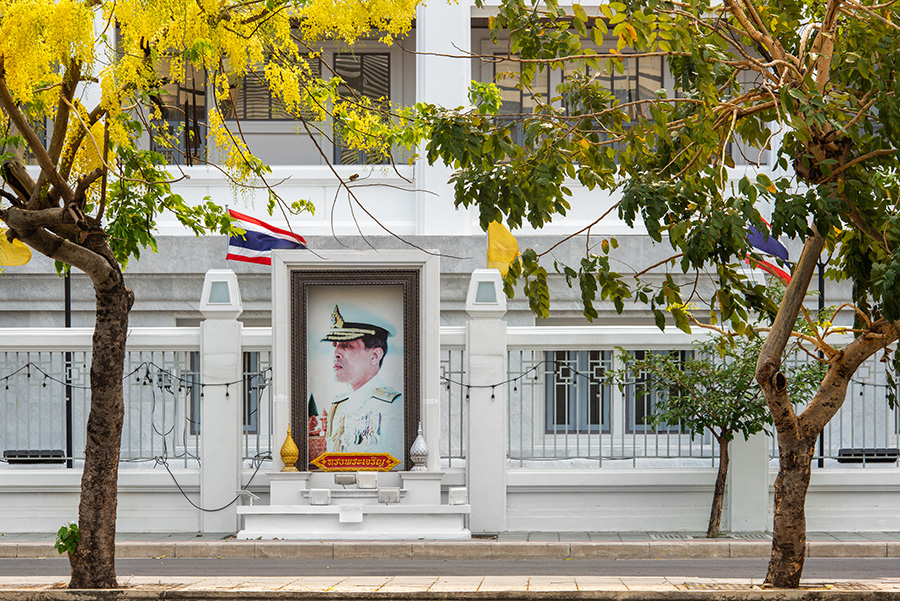
The Crown’s Silence
The instrumentalization of royal authority in Thailand’s constitutional framework raises profound questions about the nature of monarchical legitimacy in modern political systems. Max Weber’s classic typology of authority—traditional, charismatic, and legal-rational—assumes these forms of legitimacy can coexist in constitutional systems. However, Thailand’s experience suggests that when traditional monarchical authority becomes systematically subordinated to elite political interests, it risks losing its essential character as a source of transcendent legitimacy.
The deployment of Section 112 lèse-majesté provisions within this constitutional framework exemplifies this dynamic. Rather than protecting genuine royal dignity, these provisions have become tools for suppressing political dissent more broadly, transforming what should be narrow protections of royal reputation into comprehensive shields for elite political interests. This represents what constitutional theorist Mark Tushnet might recognize as “constitutional rot”—the gradual transformation of constitutional provisions away from their ostensible purposes toward partisan political ends.
The tragedy for the monarchy itself lies in what might be termed the “legitimacy parasitism” of this arrangement. Thai elites have not merely allied themselves with royal authority; they have made royal authority dependent on their political success. When elite legitimacy weakens, royal legitimacy necessarily suffers by association. The monarchy finds itself trapped in what political scientist Juan Linz would recognize as a “legitimacy coalition” with increasingly unpopular elite interests, undermining the very transcendence that traditionally gave royal authority its power.
This dynamic creates what constitutional scholar Bruce Ackerman would recognize as a “constitutional moment” in reverse—rather than popular mobilization leading to constitutional transformation, elite constitutional manipulation is generating the popular pressure that may ultimately force fundamental systemic change. The question becomes whether this pressure will lead to constitutional reform that preserves royal authority within a genuinely democratic framework, or whether the monarchy’s association with elite manipulation will prove fatal to both institutions.
How Elite Triggers Democratic Revolution?
The most striking aspect of Thailand’s constitutional crisis lies in its demonstration of what might be called the “control paradox” of authoritarian constitutionalism. By creating a system so obviously rigged in favor of elite interests, Thai constitutional engineers have undermined the very legitimacy their system was designed to protect. The more successfully the constitution prevents genuine democratic competition, the more obvious becomes its fundamentally anti-democratic character, generating the popular resistance that threatens the entire system.
This paradox reflects deeper tensions in what comparative political scientist Larry Diamond calls “hybrid regimes”—systems that combine democratic forms with authoritarian substance. Thailand’s 2017 Constitution represents an extreme version of this phenomenon, where the gap between democratic appearance and authoritarian reality has become so wide as to undermine the system’s credibility entirely. The repeated dissolution of political parties, rather than demonstrating the system’s strength, reveals its fundamental weakness: the inability to accommodate genuine political competition within constitutional bounds.
From a legal philosophical perspective, this crisis illuminates the limitations of what H.L.A. Hart called the “rule of recognition”—the fundamental social practices that give legal systems their authority. When constitutional rules systematically violate popular expectations of democratic governance, they risk losing their claim to legitimate authority entirely. Thailand’s experience suggests that constitutional systems cannot indefinitely maintain their legitimacy purely through procedural correctness when their substantive outcomes systematically contradict popular sovereignty.
The ultimate irony lies in how elite efforts to strengthen their position through constitutional manipulation have actually accelerated their legitimacy crisis. By making the monarchy complicit in obviously anti-democratic constitutional arrangements, Thai elites have not only weakened democratic institutions but also compromised the very royal authority they claim to protect. The result is a system where neither democratic legitimacy nor traditional royal authority can provide stable foundations for political order.
Thailand’s constitutional crisis thus represents more than a national political dispute; it illuminates fundamental tensions in modern constitutionalism between elite control and popular sovereignty, between traditional authority and democratic governance, and between constitutional form and constitutional substance. The resolution of this crisis will likely determine not only Thailand’s political future but also provide crucial insights into the broader dynamics of constitutional breakdown and renewal in hybrid political systems worldwide. The question remains whether Thai political actors can find a path toward genuine constitutional democracy before the current system’s contradictions destroy the legitimacy of all major political institutions, including the monarchy itself.
Prem Singh Gill
Prem Singh Gill is a Fellow at the Royal Asiatic Society (England and Ireland) and a Visiting Scholar in Thai Public Universities.
